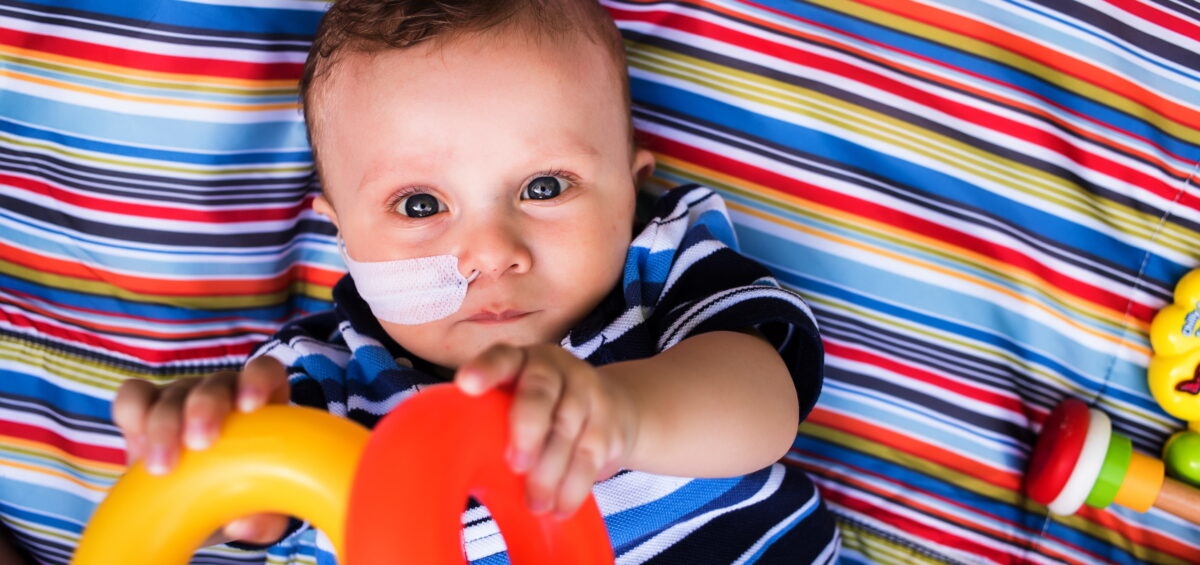When we learned that we were having a boy, my partner and I decided to name our baby Jack. Being movie buffs, we noticed that characters named “Jack” are very often the heroes.
When Jack came into our lives, he lived up to his name: an Apgar score of 9-10-10, in perfect shape, he nursed well and was very strong. We were confident that everything would be fine at home, as Jack is the second child in our family. However, four days after his birth, Jack started crying a lot, and his skin turned yellow. The CLSC nurse suspected breastfeeding jaundice at first. But after three weeks, I became increasingly worried and decided to see our family doctor. She believed what Jack was experiencing could be caused by a gut malformation. After an x-ray, everything happened extremely quickly. We received a call urging us to get to the Sainte-Justine Hospital, where we learned that Jack was suffering from Biliary Atresia.
Jack was four weeks old when he underwent his first procedure, a pediatric Kasai procedure. Two months after the surgery, we learned that the operation did not work and that Jack instantly added to the transplant list with Transplant Quebec. This is when Jack’s specialist first told us about living liver donation.
The path to living liver donation was challenging. First, I found out that my liver was too big for my son, and I am in the 10% of the population with a larger than normal liver. We then learned that my husband Jayson was compatible, but it was impossible to arrange the transplant right away since it was the holiday season. After the holidays, the medical team told us that my liver had become compatible as Jack had grown and was now 14 months old. I had to make a heartbreaking decision, be with my son after his surgery, or give him part of my liver. As a couple, we decided to make a rational decision rather than an emotional one. Since Jack and I have the same blood, we decided I would be his living donor to ensure the transplant had the best probability of success.
On February 15, 2018, we proceeded with the transplant. Needless to say, it was a difficult period for our family and everyone around us. Personally, when I left on February 14 to go to the hospital, I had the feeling that I was abandoning my family, but in reality, I was doing what I could to save my son’s life. On the other hand, Jayson dealt with all the stress of having two of the most important people in his life go through massive surgeries as well as all the pressure associated with taking care of our son by himself after his operation.
Despite how emotionally draining the situation was, we are fortunate as we received a lot of support from everyone around us. It’s absolutely amazing how many people volunteered to support us. Thanks to the David Foster Foundation, my husband was able to stay at our son’s side throughout the entire process, which gave us a lot of reassurance. I was apart from my family for an entire week after the operation. I was in another hospital on the other side of town, and it was an absolutely unbearable time, but one that will have been so worth it.
Jack is doing well today. We still have to take him to the Sainte-Justine Hospital quite often for treatments and interventions to counter his anti-rejection medications’ side effects. Jack is a very strong child, and he is now thriving. He loves robots, cars, and especially playing with his big sister Alicia, who is so kind to him. We remain hopeful in research and in the future.
Jack, always true to his first name, is resilient, courageous, perseverant and selfless. We are so proud of him.
Photo Credit: Geneviève Beaupré & Genero Photo



